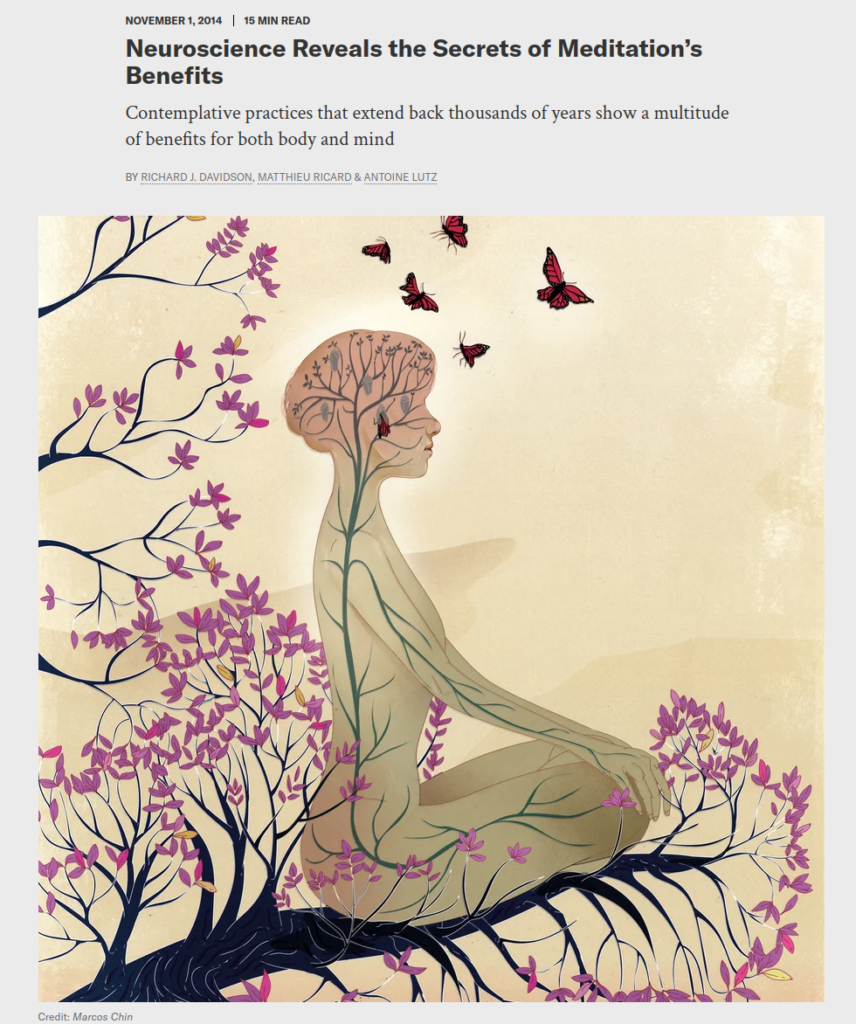Publication
Scientific American
Vol. 211 No. 5
Abstract
A very readable introduction to the scientific findings in neurology about primarily Buddhist forms of meditation.
Web and Email Links
Related Listings
Journal
Neuroreport
Meditation is a conscious mental process that induces a set of integrated physiologic changes termed the relaxation response. Functional magnetic resonance imaging (fMRI) was used to identify and characterize the brain regions that are active during a simple form of meditation. Significant (p<10(-7)) signal increases were observed in the group-averaged data in the dorsolateral prefrontal and parietal cortices, hippocampus/parahippocampus, temporal lobe, pregenual anterior cingulate […]
Journal
Annals of the New York Academy of Sciences
Stress is a well-known risk factor in the development of addiction and in addiction relapse vulnerability. A series of population-based and epidemiological studies have identified specific stressors and individual-level variables that are predictive of substance use and abuse. Preclinical research also shows that stress exposure enhances drug self-administration and reinstates drug seeking in drug-experienced animals. The deleterious effects of early life stress, child maltreatment, a […]
Journal
Journal of Human Stress
The efficacy of the regular elicitation of the relaxation response in reducing surgical anxiety and pain in an ambulatory surgery setting was studied in a population of patients scheduled for the surgical removal of a skin cancer. Forty-nine patients with skin cancer were enrolled in the study immediately after being informed of the ned for surgery; 21 of these patients elicited the relaxation response 20 minutes per day until the day of surgery, 21 read for 20 minutes per day, and 7 […]

